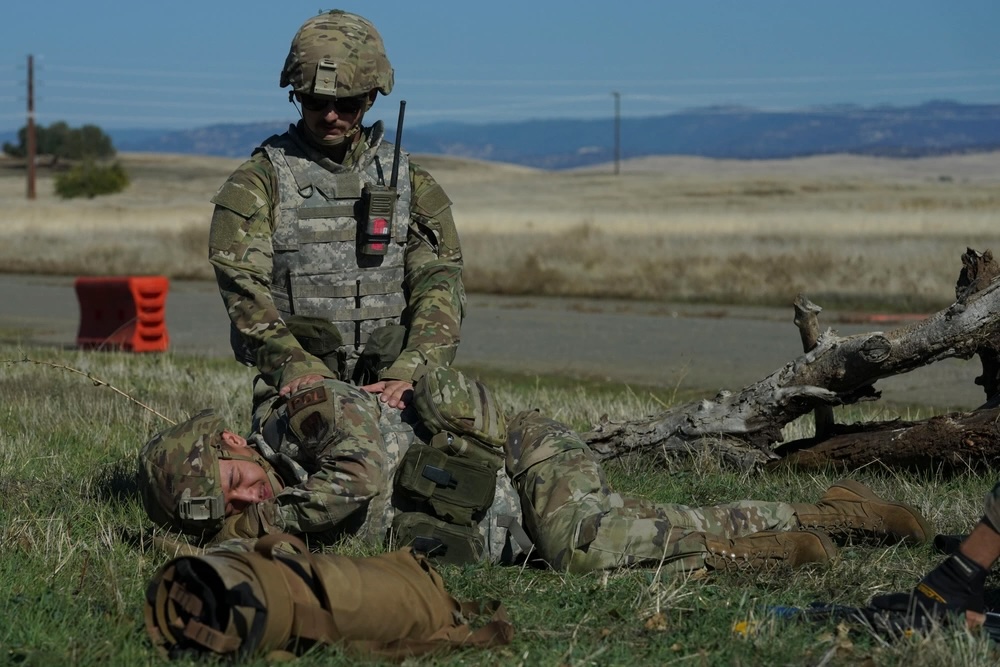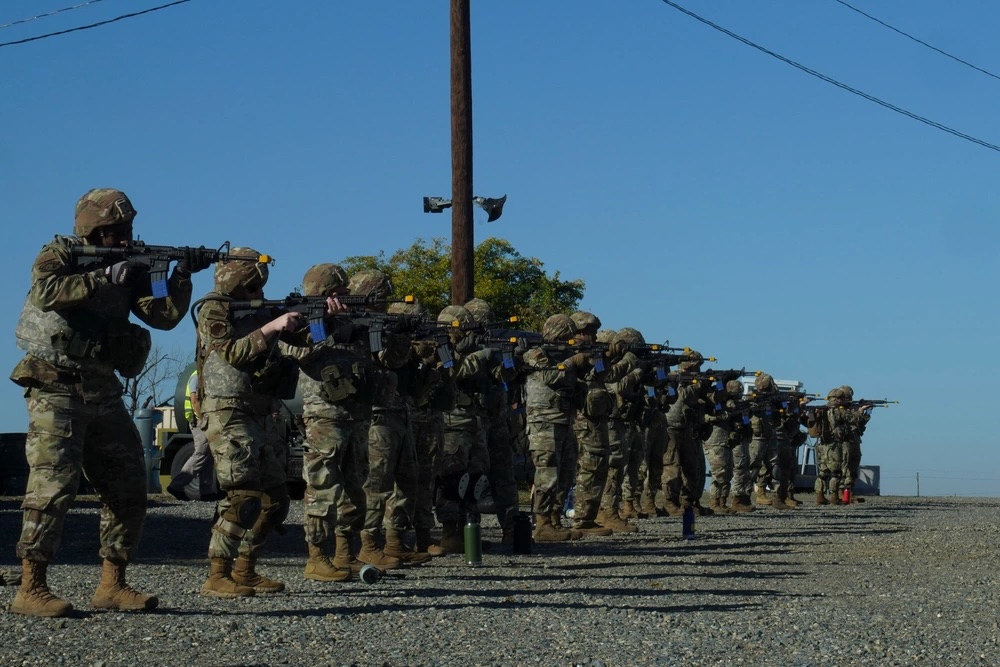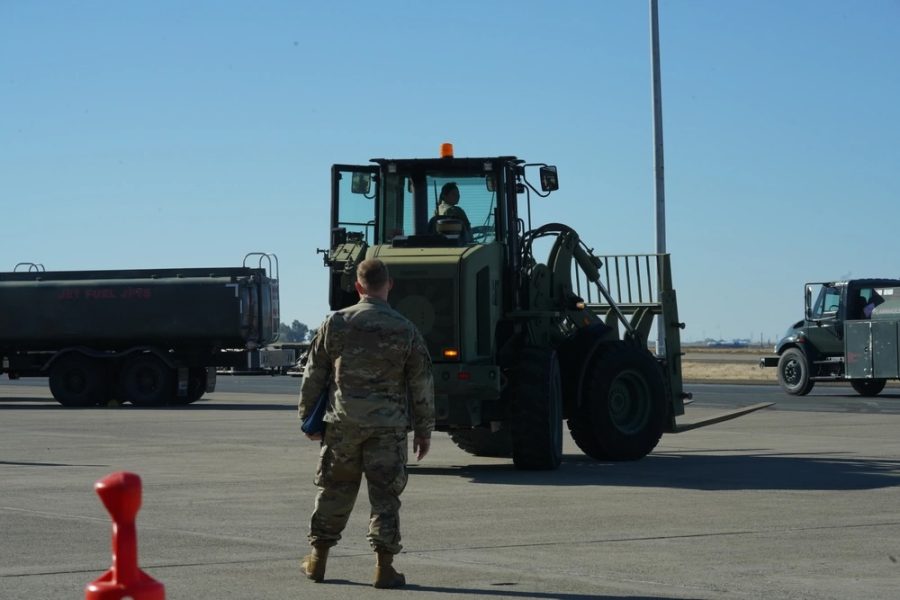A new course at Beale Air Force Base, Calif., prepares Airmen to be the Multi-Capable Airmen needed by a more flexible, expeditionary Air Force.
The Multi-Capable Airmen (MCA) Tier-1 certification course, held for the first time Oct. 16 to 27, trained 24 students in the legal, maintenance, and other career fields to handle expeditionary skills ranging from base defense, to forklift operation, cargo handling, aircraft refueling, and tactical combat casualty care.
The MCA concept is crucial to the Air Force’s Agile Combat Employment strategy, which envisions Airmen operating in small units from small, distributed airfields and changing locations frequently to make it harder for adversaries to target them with long-range weapons. The strategy is a shift away from the large, sprawling air bases that have been the traditional model for decades. Emphasizing a light footprint, ACE can work only if Airmen are ready to be jacks-of-all-trades.
“Not only does this training help prepare our Airmen for successfully supporting the day-to-day mission downrange, but it also helps support the future of Agile Combat Employment operations at forward operating sites and contingency locations,” Maj. Matthew Mays, 9th Reconnaissance Wing A4 (Logistics, Engineering and Force Protection) director, said in a press release about the training.
“It is part of an Air Force initiative to move away from large-scale force packages and prepare units to operate as leaner, more agile forces within a permissive environment,” he added.

As a prerequisite before joining the course, students had to complete Ready Airman Training, which included firearms training and how to operated in a chemical, biological, radiological, nuclear, and explosives environment.
The MCA course built on that, putting Airmen through the basics of operating and defending a small airfield, including ground defense, setting up tents and control points, treating casualties, and assaulting a target area or facility.
“The course did have a heavy focus on base defense skills and will continue to do so,” Mays told Air & Space Forces Magazine. “However, the class also had a number of days for cargo handling and refueling, and the plan in the future will be to increase this type of training.”
Cargo handling was where Staff Sgt. Clayton Johnson, 9th Logistics Readiness Squadron fuels mobile distribution supervisor, came in to teach the students how to operate an all-terrain forklift that can pick up 10,000 pounds.
“This portion is important because when we go down range, if we have to drive a forklift and do not have a certified forklift operator, we can still move cargo that comes in and out of aircraft,” Johnson said in the release.
Under MCA, Airmen who don’t normally work with aircraft may have to help generate sorties, so the course taught students how to work safely on an active airfield.
“This included safe-for-maintenance (actions required to ensure the aircraft is safe enough for maintenance personnel to begin working on the aircraft), hazard areas such as moving surfaces and the engine intake, and safely working around aircraft support equipment,” Mays explained.

The course ended with an all-day field training exercise, after which students received their official MCA certification, a feature which distinguishes Beale’s training from similar courses at other bases. But MCA skills are perishable, so certified Airmen must take part in at least one certifying event, such as a large-scale readiness exercise, every two years.
Those large-scale readiness exercises, and MCA training in general, will be worked into the new Air Force Force Generation (AFFORGEN) system, which aims to cycle units through four six-month phases of preparedness—reset, prepare, certify, and available to commit—over continuous two-year cycles.
“Certifying events are an evolving requirement of the AFFORGEN model,” Mays explained. “They are intended to exercise training received during the “prepare” phase and determine a unit’s ability to succeed during a deployment. While complete definitions of a certifying event are not yet finalized, these events fall under large-scale readiness exercises that test units’ ability to survive and operate in a deployed environment.”
The 9th Reconnaissance Wing aims to hold the MCA course quarterly, with the goal to train up to 60 students. Airmen in the “prepare” or “certify” phase have priority, since they are closer to the deployment window.
The first to complete the course enjoyed the experience: Mays reported a 4 out of 5 average overall score on course feedback forms, with some students requesting another week of training.
“Being a Multi-Capable Airman is about generating airpower,” said Chief Master Sgt. Breanna Oliver, 9th Reconnaissance Wing command chief, in the release. “We can all contribute to that no matter what our function is.”
